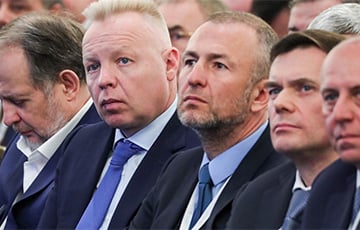Bloomberg: Russian Billionaires Do Not Believe War Will End Soon
6- 13.11.2024, 15:32
- 5,648

They don’t believe in the lifting of sanctions against Russia either.
Some Russian billionaires do not share the optimism of dictator Vladimir Putin's government regarding the growth rate of the Russian economy, and do not see any prerequisites for the elected US President Donald Trump to lift sanctions.
This is stated in the material of the Bloomberg agency.
Although the billionaires do not expect a financial collapse that would force dictator Putin to stop the invasion of Ukraine, six of them, anonymously interviewed by journalists of the publication, said that the Russian economy has changed significantly since the beginning of the war and this makes long-term goals unattainable.
Most of them doubt that the Russian-Ukrainian war will end in the near future — despite Trump's promises to end it as soon as possible.
The billionaires' opinions contrast with the rosy forecasts of the Russian dictator Putin's government and spending targets, as well as with the recent growth of the market of some European companies with significant interests in the region.
The sanctions that have forced Russia to reorient its trade from Europe to Asia have also forced many Russian billionaires to bring their money back from abroad. Their companies have restructured their export, payment and logistics systems, while Russia has imposed new taxes on them to finance the war machine of dictator Putin.
According to the government’s plan, Russia will show economic growth of 3.9% in 2024 (after 3.6% in 2023), and next year it will only slow slightly to 2.5%, after which the pace will increase again: 2.6% in 2026, 2.8% in 2027 and 3% on average in 2028-2030.
Putin’s government’s plan is too optimistic, several billionaires told Bloomberg and criticized the Russian government’s policy. Even if a ceasefire is eventually reached on the battlefield in Ukraine, Western sanctions will not be eased anytime soon, they say.
Additionally, import substitution is slow, and the recruitment of hundreds of thousands of citizens to fight in Ukraine is exacerbating the labor shortage, the billionaires say.
However, they are convinced that Russia has enough resources to sustain its economy and military efforts for many years. The Soviet Union, they say, endured decades of economic hardship before it eventually collapsed.
A September report from the Stockholm Institute of Transition Economics argues that while Russia will not face a “full-blown” crisis in the short term, economic imbalances and “bleak medium- and long-term prospects raise the risk of such a crisis in the coming years.”
At the moment, according to Bloomberg, the most pressing problem for businesses in Russia is the record-high key rate of 21%, announced by the Central Bank in October in an attempt to curb persistent inflation. Moreover, officials have signaled to businesses that they could raise the rate even further at the next central bank meeting in December 2024.
Billionaires including steel magnate Alexei Mordashov and Oleg Deripaska have spoken out against high rates.
Other tycoons argue that Central Bank Governor Elvira Nabiullina has limited ability to “cool” the economy and slow inflation amid massive government spending on the war and measures to support businesses hit by Western sanctions.
One billionaire told Bloomberg that high inflation would be easier to publicly defend if the government acknowledged that Russia is waging a war in Ukraine, rather than continuing to repeat the propaganda narrative of a “special military operation.”
Then the Russian government could explain to the public that very high inflation is “the price they have to pay to support the war effort,” rather than insisting that life in Russia is going on as usual, the billionaire concluded.











